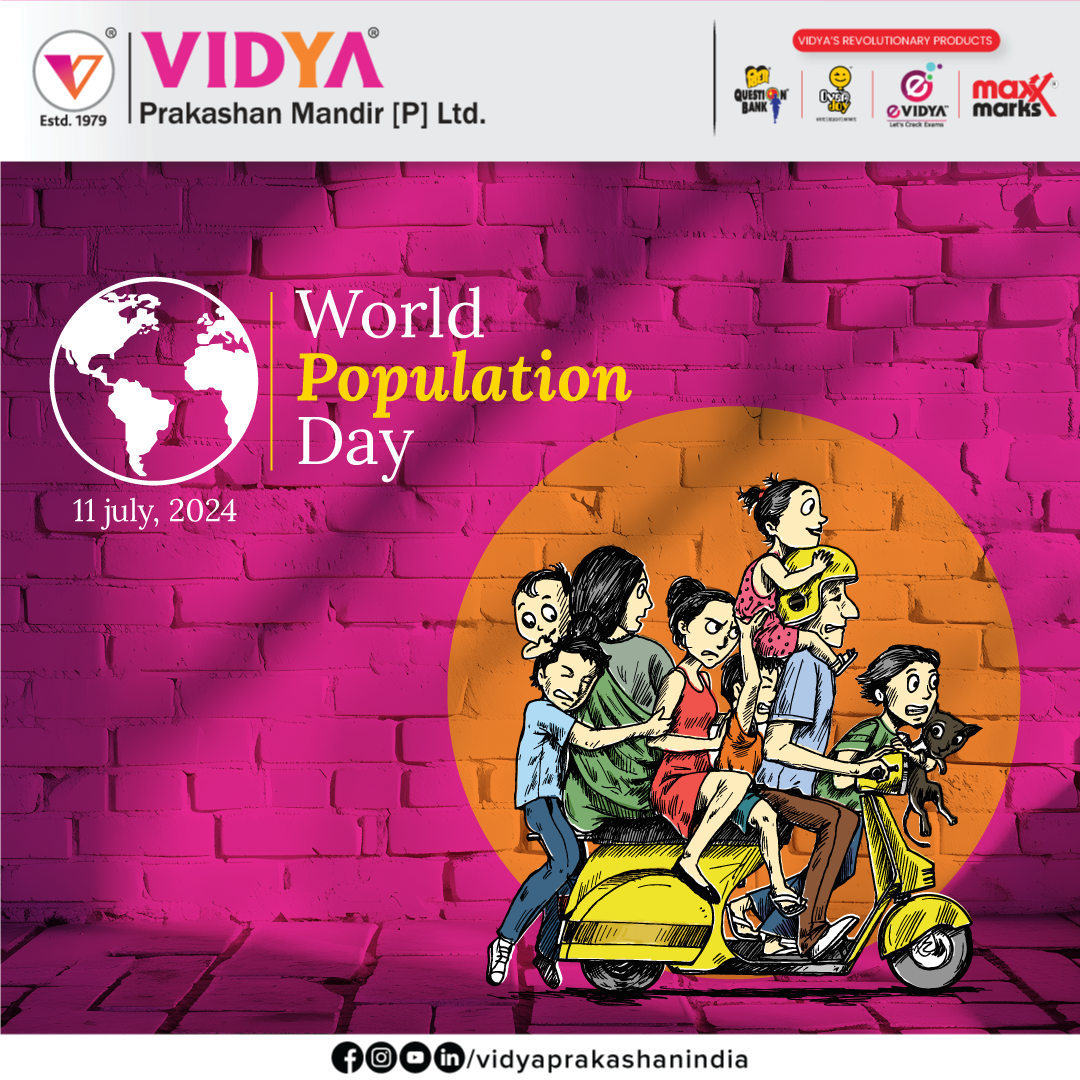Blog
World Population Day 2024

In 1989, the United Nations Development Programme (UNDP) recommended that 11th July be observed by the international community as World Population Day, a day to focus attention on the urgency and importance of population issues.
What is World Population Day
Every year on July 11th, the world comes together to observe World Population Day, a United Nations initiative that aims to raise awareness about global population issues. As our planet’s population continues to grow, it is crucial to address the challenges and opportunities that come with this growth.
Facts about World Population Day
- World Population Day addresses Global Challenges and Opportunities.
- The United Nations Population Fund (UNFPA) was created in 1969, the same year the United Nations General Assembly declared that “parents have the exclusive right to determine freely and responsibly the number and spacing of their children.”
- A resolution to the effect was passed, and the day was first marked on 11th July 1990.
- UNDP was inspired by the public interest and awareness that was created by “Five Billion Day” on 11th July 1987 when the world’s population reached 5 billion.
- The UP government’s law commission has also prepared a population control bill, under which a two-child norm will be implemented and promoted.
- As of 2024, the global population stands at approximately 8 billion people. This milestone presents both challenges and opportunities.
- With more people moving to cities, urban areas are becoming densely populated, leading to issues like inadequate housing, traffic congestion, and pollution.
- Many countries are experiencing an increase in the proportion of elderly citizens. This demographic shift requires adjustments in healthcare, pension systems, and employment practices to support an ageing population.
- By stabilizing population growth, we can reduce the strain on natural resources and promote sustainable development.
- The population of the world is more than three times larger than it was in the mid-twentieth century.
- The two most populous countries are China and India, both countries have over 1 billion people, representing nearly 18 per cent of the world’s population, respectively.
Significance of World Population Day
This day traces its origin to the “Day of Five Billion” (July 11, 1987), when the global population reached approximately 5 billion.
World Population Day was established by the United Nations Development Programme in 1989, inspired by the interest generated by the “Day of Five Billion,” observed on July 11, 1987. The day highlights the urgency and importance of population issues in relation to development, health, and the environment. As we mark this day, it is essential to reflect on the progress made and the work that still needs to be done to ensure a sustainable future for all.
History of World Population Day
The history of World or International Population Day dates back to the 1980s.
- On July 11, 1987, the global population reached approximately five billion. This was a landmark moment in the world demography, drawing global attention to the rapid population growth.
- This day brought global focus to issues related to sustainable development, resource management, and the dynamics of population expansion.
- The overwhelming response and interest generated by this event underscored the need for a dedicated platform to address population issues on a continuous basis.
- The United Nations Development Programme (UNDP) identified the necessity for a focused approach to population issues in the wake of the attention garnered by the “Day of Five Billion.”
- Accordingly, in 1989, the UNDP Governing Council established the Day to be observed annually on July 11 (the “Day of Five Billion”).
- The formal endorsement by the UN General Assembly solidified the Day as a key observance for raising awareness and promoting action on population dynamics.
- The objective was to promote understanding and awareness of population challenges, encouraging integration of these considerations into policies and programs.
World Population Day Theme
The theme for World Population Day 2024 will be declared soon by the United Nations Development Programme (UNDP) in coordination with the United Nations Population Fund (UNFPA).
The theme will serve as the focal point for the global celebrations and advocacy efforts surrounding this important annual event.
The Role of Governments and NGOs
Governments and non-governmental organizations (NGOs) play a vital role in promoting reproductive health and family planning.
- Policy and Advocacy: Governments must implement policies that support reproductive health and family planning services. This includes funding for healthcare programs, education initiatives, and advocacy campaigns.
- Community Outreach: NGOs often work on the ground to provide education and services to underserved communities. Their efforts are essential in reaching populations that may not have access to formal healthcare systems.
The Slogan for World Population Day is “Control the population and save women’s lives.” Reduce the crowd over the earth for a better future. The increasing population is toxic to the earth’s environment. Overpopulation is the overload on the planet, let’s pledge to reduce the load.
World Population Day serves as a reminder of the interconnectedness of population issues with health, development, and the environment. By addressing these challenges through comprehensive reproductive health services, gender equality, and sustainable policies, we can create a world where every individual has the opportunity to thrive.
As we celebrate this day, let us commit to working together to ensure a healthier, more equitable, and sustainable future for all.
Happy World Population Day 2024!















